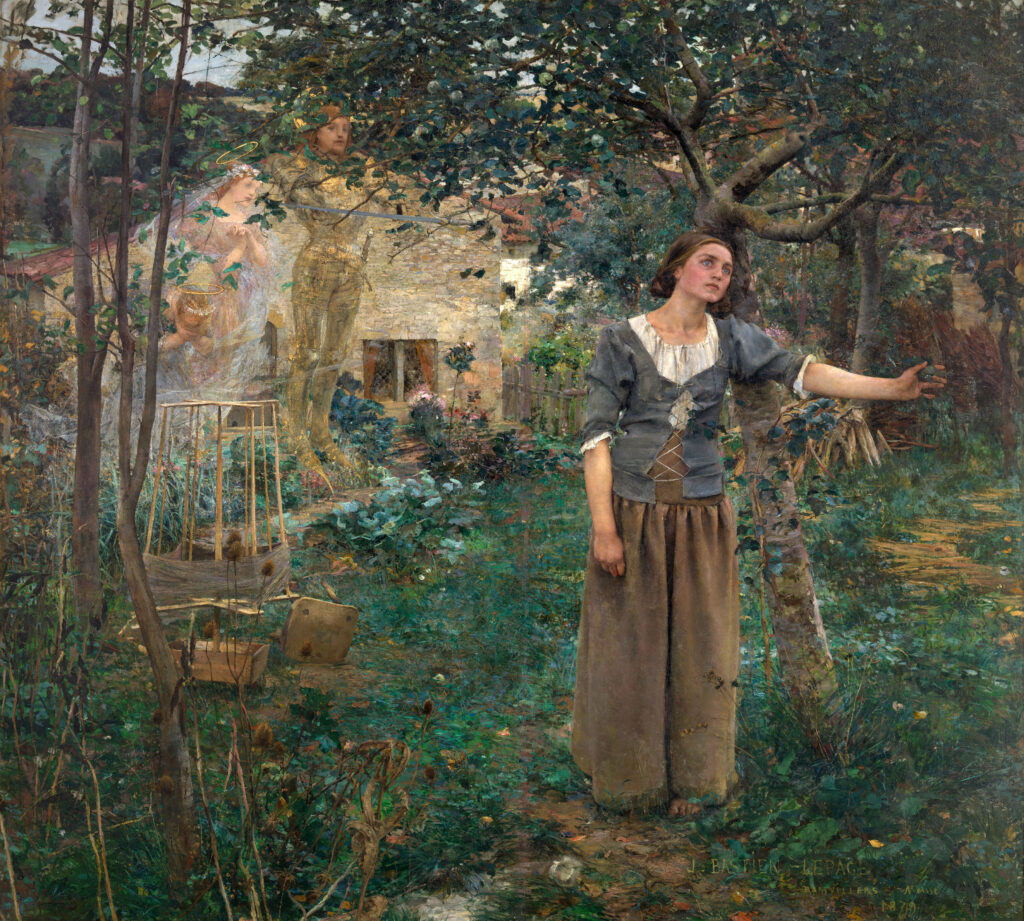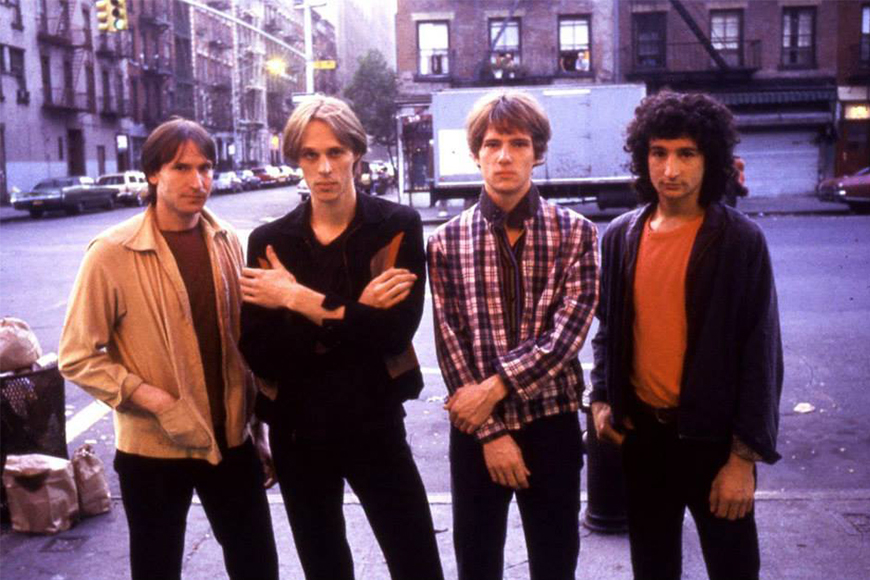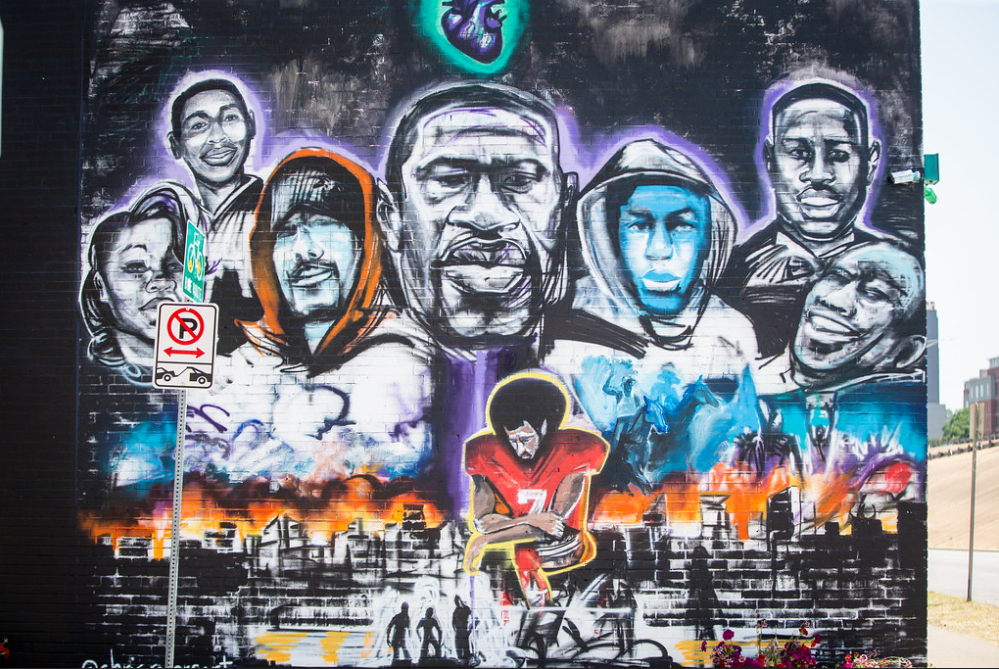Colin Meloy reflects on the band and their new album, As It Ever Was, So It Will Be Again
By Jeff McCord

Just a shade under fifty, Colin Meloy seems to have it all figured out. In 2022, he released his fifth children’s book, and his popular Wildwood book series is about to be turned into an animated film. Since 2000, he’s also fronted the Decemberists, a successful Portland-based band about to release their 9th album, As It Ever Was, So It Will Be Again (out June 14th). Throughout their run, their core lineup has remained virtually unchanged, their career devoid of the usual rockstar drama.
Stable, in other words. But don’t confuse stability with playing it safe. Meloy’s writing has always been quietly subversive. The Decemberists’ sprightly folk-rock disguises their ink-black subject matter.
You laid down below a stone /
Saying ‘Wherever they have gone, I long to go. /
Somewhere out beyond these maladies in my head’
That’s from “Burial Ground”, a jaunty gallows-themed number, followed by “Oh No!” ‘s wedding massacre, “The Reapers” and “The Long White Veil”. The first four songs on the album are all plainly about death.
“I guess they come from my own fascination with death and how we treat death. You know, marrying the sort of upbeat pop melody progression with darker lyrics, I think is our trade and has been from day one,” Meloy observes.
“All of our records have those dark moments. I actually think of this record as overwhelmingly positive. ‘Burial Ground’ or ‘The Reapers’ is a way of talking about these things that we fear in a way that feels positive and productive and in some ways, sort of pokes fun at our own seriousness. I think there is a playfulness that runs through the record too.”
Meloy is lounging in a chair in the empty lobby of UT’s Bass Concert Hall (where the band played on May 15th), answering questions while waiting for soundcheck to begin. He’s polite, alert and engaged, if a bit bemused. It’s nothing he hasn’t done a thousand times before.
And The Decemberists are no stranger to Austin and KUTX, either. They’ve appeared in Studio 1A, and years earlier, when in Austin, they also performed on KUT.
“You know,” he recalls, “Coming down for South by Southwest was always such a huge deal. And our first time in South by Southwest we played a Kill Rock Stars showcase [the band’s early label]. I don’t remember where, some outdoor venue. I’m sure there were like ten people there, but it felt like this crowning moment.”
I mention how the new record has the feel of some of his very early songs, “The Soldiering Life”, “Los Angeles, I’m Yours”. With so much time and work under his belt since those days, does he still feel he’s the same guy that wrote those songs?
“God, I think we’re always changing and shifting and none of these songs are written in a vacuum. They tend to be informed and influenced by the time that has passed our previous body of work. So, I imagine I’m the same person, [but] I don’t know if I’m the person that would write those songs again. I do feel in some ways that this record probably has more in common with our earlier records than the last couple do.”
Meloy’s songwriting has always fronted strange juxtapositions: dark themes set to hooky melodics, contemporary matters infused with an ornate old-world lyricism. Where does it all come from?
“I was already toying around with writing these sort of weird, fanciful narrative songs. I arrived in Portland and kind of fell in with the sort of songwriters in the round scene, open mic stuff, really kind of heart-on-your-sleeve singer/songwriter stuff, and I felt driven to to stand out from that. A lot of the writing early on in The Decemberists was a reaction to that world and that community. [The themes] drew much from films, the irreverence of Terry Gilliam and Monty Python. When I was a kid, I was really enamored with that. That created a lot of the early Decemberists aesthetic. And from a genuine meaning with that sort of ironic tongue-in-cheek, there was also an interest in writing that form just from my interest in old folk music and folk tales. So those worlds collided.”

The Decemberists’ last album, I’ll Be Your Girl, was released six years ago, and was atypically political.
“It was definitely angry, a product of its time. I was reacting in a lot of ways to the political situation. In some ways, this [new] record is a reaction to that last record. I think, its shape wouldn’t have taken place if I’ll Be Your Girl wasn’t the record that it was. [Girl] was a bit more abrasive and angry, and I think after coming off of the 2018 tour, all that abrasiveness and anger caught up to me. I was feeling really ready at that point to step away from the Decemberists for a while.”
What brought the band back around?
“During the pandemic, I was working on a book. We were sort of in hibernation anyway. It took a bit to get out of that hibernation and to finish the book and focus my energies on that. And then I started taking on some other music writing projects. It was only early 2023 when I started feeling there’s enough material, enough to at least get started. Once we got started, that often can open the floodgates for more material.”
Yet that wasn’t quite the case this time around. The sessions began with a false start.
“We started in February of ‘23, just getting together to record some of the songs that we had played around with. We ended up just going through my notebooks and finding little fragments of things, teasing them out and seeing what we could discover. It was fun for a little bit, but it wasn’t super productive. By the end of that week, I was less certain about a direction than I was before. Also, we were trying to self-produce. We were working with an engineer only, we didn’t have a producer in the control room.”
“I decided we needed a creative partner outside of the band. And going back to Tucker Martine [the band’s longtime producer] seemed like the best idea, just kind of inverting how we recorded. We typically record everybody playing together. You keep the rhythm tracks and you build on top of that. But with this one, it was really Tucker and I, for a couple of weeks in the studio alone, just the two of us building from just the voice and guitar and out from there, which I think really shook it up.”
What emerged was one of Meloy’s strongest and most varied set of songs to date, a long double album grouped thematically, because – well – because they could. After years on Capitol Records, As It Ever Was, So It Will Be Again is their first release on their own label.
“Sequencing has always been really important to me,” Meloy explains. “I like an album flow. I feel like it’s an opportunity to tell a story. Even the best short story collections are laid out in a thoughtful way and have a narrative of their own. That’s how I’ve always seen records. Because we had thirteen songs, one of them being a full side, splitting it up into three groups of four and then the one was the way to go. I also was curious about taking all the quieter, more stripped down numbers and putting them together. What that would do? In my mind, they are thematically each four sides of an LP. Of course, people streaming it are not going to get that same experience. But I think it will flow about the same.”
Once again, the Decemberists are staking their independence. The songs run the gamut, the John Prine-like “William Fitzwilliam”, the cautionary “Don’t Go To The Woods”, the unabashed “All I Want Is You”, the “Black Maria” that comes for us all. “America Made Me” swims in the conflict many of us feel.
“That has been kicking around for a long time. It’s just more of my tussling with my own Americanness. In some ways I’m proud of my Americanness, but also deeply bothered by it. How it’s presented in the world, how we’re perceived, how little each of us have control over what is. You’re just kind of carried along with it.”
And there’s “Joan in the Garden”, a stunning 19-minute piece that closes the record. A brooding, mysterious epic based on the Jules Bastien-Lepage painting of Joan of Arc’s angelic visitation.

“The painting always stuck with me,” Meloy confesses. “It was a combination of being fascinated with the story of Joan of Arc after having read Lidia Yuknavitch’s The Book of Joan, a totally insane, transgressive science-fiction retelling of the story of Joan of Arc. I didn’t know that much about the story of Joan of Arc herself, [so I began] reading more and going deep into her world, feeling like I needed some sort of creative output, trying to find a way to put Joan into a song and really struggling with that, with what that meant. I didn’t want to do a biography. So it was a question of finding what was in her story that I felt was the universal truth I wanted to tell. It came back to that painting and that idea of her visitation, attaching modern sensibilities to what that experience was. How would we interpret that today? This relatively poor woman who rises to this power but is ultimately shut down by a patriarchy, when she herself kind of defies what we would consider gender norms today. There’s a lot of stuff that I feel like speaks to what our modern story is, the song grapples with a lot of those things.”
Meloy admits he labored over the piece, which makes several dramatic turns, not dissimilar to rock operas or prog rock-like excursions. Over the years, Meloy has owned up to his many influences; he wrote a book about the Replacements’ “Let It Be”, loves R.E.M. and particularly, the Smiths’ Morrissey.
“I think that Morrissey is a genius. I know his politics are awful. And he’s probably not a great hang or anything. I don’t know, I haven’t met him. But what he brought to music, I think he found something in his writing voice, in his performance that was so serious, but also irreverent. He gets painted as being pretentious, [but] I think those people don’t recognize just how funny and playful he was. He’s just a phenomenal performer.”
But he doesn’t mention any prog-rock leanings. Did he spend time listening to prog as a kid?
“I didn’t. I have the kind of music that I love, but I’m such an ardent music fan that my appreciation and understanding of all sorts of genres just can’t help spill out. I love the ideas around prog rock. I love the multi-part suite thing. You find that against all odds, in other music other than prog. I don’t necessarily think of music that we make as being prog so much as it is a nod to psychedelic music, early Pink Floyd, but messing with more ambitious scope. Husker Du was doing that with Zen Arcade. I think of Sonic Youth’s Daydream Nation, which ends with this long song. Those big swings I always… I like big books. I like long songs that really invite the listener to spend some time and invest themselves.”




